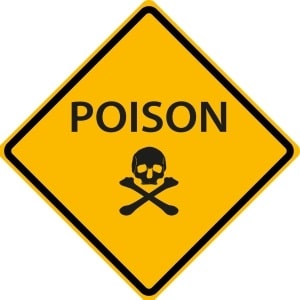by: Rachel Lynch
Caring for a loved one is no easy task, and the number of Americans who take on the arduous role is astronomical. In the last 12 months, 34.2 million Americans have provided unpaid care to an adult age 50 or older. Making the choice about what type of care best serves your loved one is multidimensional to say the least. Whether you decide to move them in with you, find a care facility, or something in between, it is important to ensure their living environment is conducive to happy and healthy days.
Regardless of your decision, it is in everyone’s best interest to inspect the facility for household toxins before making a commitment about where your loved one will spend their time.
Asbestos
Asbestos is a microscopic particulate mineral once commonly included in building materials between 1930 and 1970. The mineral was used in numerous capacities, including ceiling/floor tiles, insulation, wallpaper, and furnaces. Do not shy away from asking about any potential exposure to the toxin if your home, or the housing facility you’re considering for your loved one, was built during those decades.
Asbestos exposure is the only known cause of mesothelioma cancer, a rare and very aggressive disease. The cancer develops in the lining of the organs after inhalation of asbestos fibers. The most common form is pleural mesothelioma, and symptoms of the disease include chest pain and shortness of breath. Take a moment to talk about potential risks with the person you’re caring for when discussing asbestos with facility management.
Asbestos was also commonly used in the armed forces, so veterans may have been exposed to the toxin during their service years. Tens of thousands of veterans who worked with asbestos while in the Armed Forces have been diagnosed with asbestos-related diseases, so the discussions are warranted.
Lead
While lead-based products are now illegal to use in the United States, structures built prior to 1978 commonly had lead-based paint decorating the walls. Lead is a cumulative toxicant, meaning it is stored in the teeth and bones, so lead levels in the body increase over time. Lead in the body is distributed to the brain, liver, kidney, and bones. Human exposure is usually assessed through the measurement of lead in blood, and there is no known safe level of lead exposure.
Exposure to lead causes long-term harm in adults, including increased risk of high blood pressure and kidney damage. According to the a report from the
Department of Medicine at the University of Washington, lead exposure in older adults, lead can reenter the bloodstream through conditions such as osteoporosis, where it can then re-expose the soft tissue, and, potentially, exert delayed harmful effects. Lead paint is indistinguishable from those free of the toxin, so testing is required to determine if there is a risk of harmful exposure. All testing should be performed by a certified professional. Ask facility management about the age of the building and, if applicable, if they’ve had lead testing done in the space.
Carbon Monoxide
The elderly are especially susceptible to carbon monoxide poisoning. Carbon monoxide is produced when you burn fuel in cars or trucks, small engines, stoves, lanterns, grills, fireplaces, gas ranges, or furnaces. The toxic gas can build up indoors and poison those who breathe it. The most common symptoms of carbon monoxide poisoning are headache, dizziness, weakness, upset stomach, vomiting, chest pain, and confusion, and symptoms are often described as “flu-like.” Each year, more than 400 Americans die from unintentional carbon monoxide poisoning not linked to fires. Make sure there are carbon monoxide detectors with working batteries installed. The detectors should be placed in spots where they will wake the person up in the case of an emergency, such as outside the bedroom, and should be replaced every five years. if considering a housing facility, ask management when they last had their carbon monoxide detectors serviced.
Caring for a loved one is taxing work but taking a moment to ensure your loved ones are safe from the effects of toxins can assure you have more happy moments with them in your life. Asking questions and advocating for their health will help put your mind at ease, even when you’re unable to be with them.